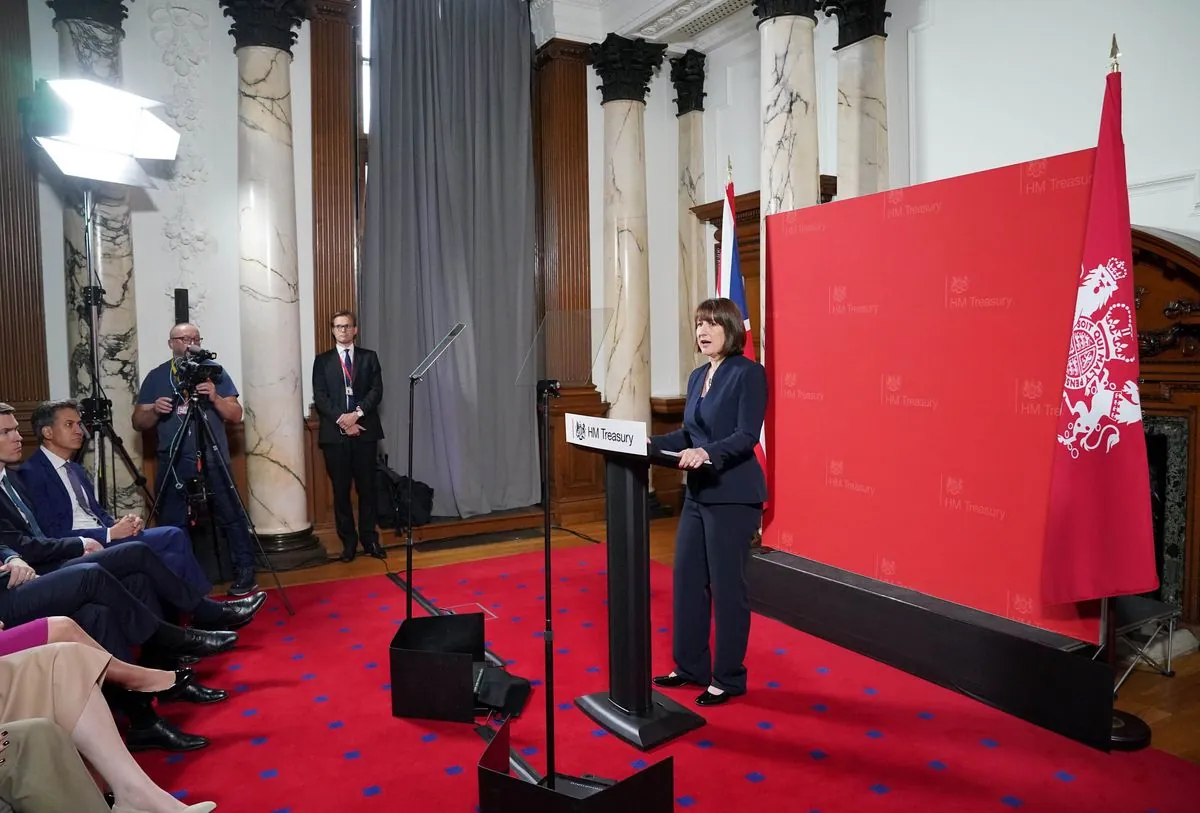UK's Financial Challenges: Reeves Grapples with Rising Public Sector Costs
Chancellor Rachel Reeves faces fiscal pressures as UK borrowing exceeds forecasts. Public sector pay rises and economic uncertainties contribute to a £22bn shortfall in public finances.

In the early months of her tenure, Chancellor Rachel Reeves has encountered significant fiscal challenges. The UK government has allocated £9.4 billion for public sector wage increases, benefiting educators, medical professionals, and emergency responders. This decision comes amid rising borrowing and economic uncertainties.
Official data reveals that the UK has exceeded spending forecasts by £4.7 billion in the initial four months of the fiscal year. The Office for Budget Responsibility attributes this overspending to public sector salary increases. The situation underscores the complexities Reeves faces in managing the nation's finances.
Philip Shaw, chief economist at Investec, notes, "The figures indicate that the public finances are in a worse condition than the OBR anticipated in March." This situation may necessitate fiscal consolidation, potentially leading to tax hikes in the upcoming budget.

The UK has borrowed £51.4 billion in the first third of the fiscal year, contributing to a national debt of £2.8 trillion. These figures surpassed expectations due to a softening labor market and lower tax receipts. The government's spending exceeded projections by £5.8 billion, primarily due to public sector wage increases.
Ben Zaranko, an economist at the Institute for Fiscal Studies, suggests multiple factors contributing to this situation. These include an increase in public sector employment, which has reached its highest level since 2012, and potential increases in senior-level hiring and promotions.
Reeves has identified a £22 billion deficit in public finances for the current year, which she attributes to the previous administration. However, Shaw points out that the current government's choices, particularly regarding public sector pay, have also contributed to financial pressures.
"In just one-third of this financial year the Government appears to have spent 34.1pc of what was budgeted for the whole year, whereas since comparable data began in 1997 it has never spent more than 32.9pc of the eventual total in the first third of the financial year."
The government's decision to increase public sector pay, despite financial constraints, reflects its commitment to addressing recruitment challenges. However, this approach has led to difficult choices between tax increases, spending reductions, or increased borrowing.
Ruth Gregory from Capital Economics anticipates that Reeves may propose tax increases of around £10 billion in October. However, she also notes that recent economic developments, including decreases in market interest rates and gilt yields, could influence the Chancellor's decisions.
The current financial situation, while challenging, is not entirely unexpected. Prior to the recent election, official data had already indicated signs of overspending. The Office for National Statistics had published estimates showing borrowing exceeding forecasts by nearly £2 billion in the first month of the fiscal year.
As Reeves prepares for her inaugural budget, she must navigate these complex financial challenges while balancing the needs of public services and the overall economic health of the nation.


































